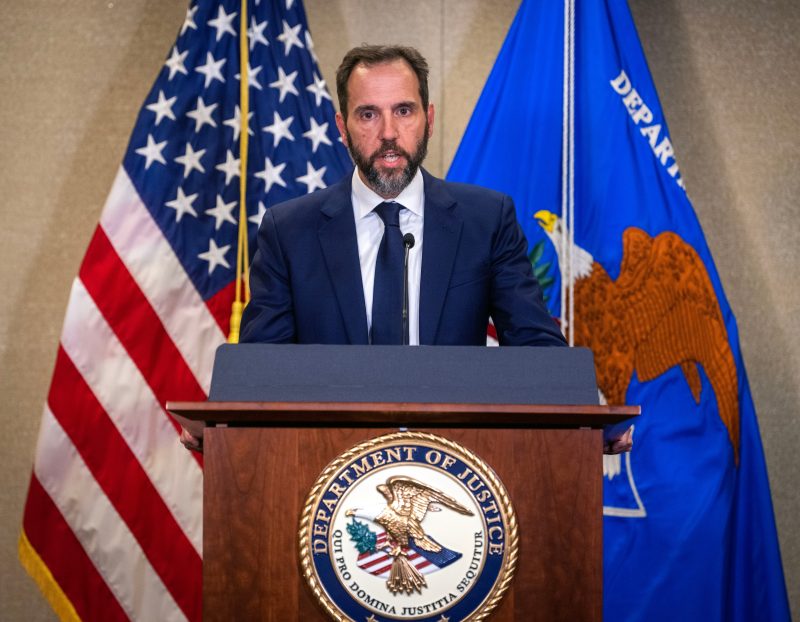
Trump co-defendant Carlos De Oliveira pleads not guilty in documents case
Carlos De Oliveira — a co-defendant in Donald Trump’s classified documents case — pleaded not guilty Tuesday to charges that he schemed with the former president to try to keep boxes of sensitive materials from being returned to the federal government.
De Oliveira, a 56-year-old Floridian, is the property manager at Mar-a-Lago, Trump’s Florida home and private club. He appeared at the federal courthouse in Fort Pierce, Fla., to plead not guilty to four charges, including allegations that he obstructed the investigation and misled officials.
Trump has already pleaded not guilty to the 40 charges he faces, which include illegally retaining national defense information and obstructing efforts to retrieve it. Waltine “Walt” Nauta, Trump’s personal aide, has pleaded not guilty to the eight charges he faces. De Oliveira was delayed in entering his plea because his Florida-based attorney had not yet filed papers saying he would represent De Oliveira in court.
U.S. District Judge Aileen M. Cannon has scheduled a trial to begin in late May and will hold a pretrial hearing on Aug. 24.
In court filings in recent days, prosecutors and defense attorneys have sparred over where and whether Trump, Nauta and their lawyers may review or discuss classified material that is being used as evidence in the case. Such materials need to be viewed or talked about in a government-accredited sensitive compartmented information facility, known as an SCIF.
Trump’s lawyers said in a filing last week that it would be impractical for the former president, who is running for reelection, and his attorneys to regularly travel to an SCIF as they build their defense case. Instead, they suggested that Trump be allowed to discuss classified information in a “previously approved facility at or near his residence.” Trump had an SCIF at his Mar-a-Lago residence when he was president.
His attorneys said Trump wouldn’t view the classified materials at this SCIF — only discuss them.
In response, prosecutors said Monday that they have always proposed that Trump and his attorneys be allowed to discuss the materials in any authorized SCIF, not only at the SCIF where the classified evidence is stored.
But they said Mar-a-Lago, a busy social club, would be an inappropriate place for an SCIF — and an unnecessary special accommodation for Trump “that deviates from the normal course of cases involving classified discovery.”
Cannon has said she will hold a hearing if necessary to settle on the restrictions for the handling of the materials, which is known as a protective order.
The government and attorneys for Nauta also disagree over whether Nauta should be able to view the classified materials during the discovery process.
Prosecutors say Nauta helped Trump keep some of the classified materials from federal officials as they demanded them back and then misled investigators about it.
The government has told Cannon that Nauta should not have access to all the classified evidence during discovery, though his attorneys can. Nauta has argued through his attorneys that he should be able to view all the classified evidence to ensure that the jury selection is fair and that he has a strong defense.
Federal prosecutors said that, unlike Trump, Nauta is not charged with retaining classified information. They said that they will disclose classified information Nauta has already viewed and that his lawyers can request that he see specific pieces of classified information if it is relevant.
“Classified information may lawfully be provided only to individuals who have a ‘need to know’ the information,” prosecutors wrote Monday. “Nauta would turn this principle on its head — instead of articulating a need to know as a condition precedent for blanket access to several thousand pages of classified information, he asks this Court to presume a need to know simply by virtue of his being a defendant — a defendant who is not even charged with retaining national defense information.”
